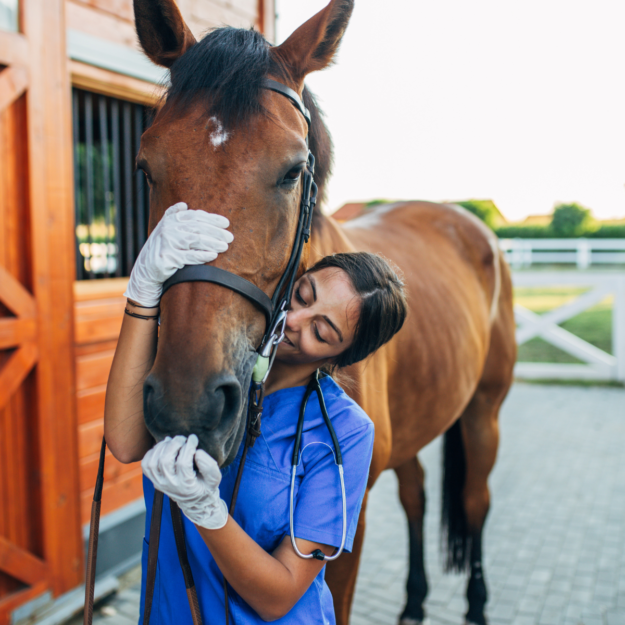Dr. Grider is passionate about promoting mental health in the veterinary field. She is a Certified Compassion Fatigue Professional and is currently completing a master’s degree in Clinical Mental Health Counseling. Dr. Grider is the co-host of
IntroVETS, a veterinary podcast by introverts with high-functioning anxiety. Following graduation from Auburn University College of Veterinary Medicine in 2008, she practiced as an Associate Veterinarian for eleven years before starting her own veterinary relief business.
Lauren S. Grider, DVM, CCFP In the last article we met Sydney*, a longtime veterinary technician who was experiencing feelings of guilt surrounding her need for a job change. After examining the ways in which her work in the veterinary field both contributes to her core identity and impacts her other roles and responsibilities, she…
Lauren S. Grider, DVM, CCFP In the last article, we followed longtime veterinary technician Sydney* as she investigated job opportunities and identified potential areas of career interest. After using the O*NET Interest Profiler to learn about her RIASEC code, Sydney was able to feel more confident about evaluating potential jobs and finding a good fit…
Lauren S. Grider, DVM, CCFP When we last saw Katie,* a young veterinarian whose demanding job was significantly interfering with her life satisfaction, she had decided to improve her physical and mental wellness by adding her favorite hobby back into her routine. She used the S.M.A.R.T. Goals paradigm to create a realistic initial goal of…
Lauren S. Grider, DVM, CCFP Mark,* a twenty-eight-year-old emergency veterinarian, started getting serious about creating his self-care plan after a particularly difficult week. He had drawn holiday weekend duty in the ER, and his last shift was exceptionally busy, with a heavy load of trauma patients, many of which didn’t survive. Toward the end of…
Lauren S. Grider, DVM, CCFP Sydney* is a 41-year-old credentialed veterinary technician with more than twenty years of experience in the field. She typically works 40-50 hours a week at a busy small animal specialty practice, and she loves her job despite the high level of stress. Recently, her 10-year-old son was diagnosed with a…
Lauren S. Grider, DVM, CCFP Naya* is a twenty-six-year-old veterinarian who is seeing her last patient of the day. The patient, a seven-year-old Golden Retriever named Clara*, is bright, alert, responsive, and very affectionate. Clara’s owners explain that they are seeking humane euthanasia because of Clara’s chronic skin problems. Currently Clara has severe alopecia and…
Compassion fatigue is a state of mental and physical distress that occurs when caregivers are chronically exposed to the suffering of others. Symptoms of compassion fatigue vary and might include exhaustion, frustration, depression, apathy, headaches, gastrointestinal distress, sleep disturbances, intrusive imagery, and fear. Compassion fatigue is a state of mental and physical distress that occurs when caregivers are chronically exposed to the suffering of others. Symptoms of compassion fatigue vary and might include exhaustion, frustration, depression, apathy, headaches, gastrointestinal distress, sleep disturbances, intrusive imagery, and fear. These negative effects worsen over time if the underlying cause is not addressed.
Compassion fatigue is a state of mental and physical distress that occurs when caregivers are chronically exposed to the suffering of others. Symptoms of compassion fatigue vary and might include exhaustion, frustration, depression, apathy, headaches, gastrointestinal distress, sleep disturbances, intrusive imagery, and fear. Compassion fatigue is a state of mental and physical distress that occurs when caregivers are chronically exposed to the suffering of others. Symptoms of compassion fatigue vary and might include exhaustion, frustration, depression, apathy, headaches, gastrointestinal distress, sleep disturbances, intrusive imagery, and fear. These negative effects worsen over time if the underlying cause is not addressed.
Compassion fatigue is a state of mental and physical distress that occurs when caregivers are chronically exposed to the suffering of others. Symptoms of compassion fatigue vary and might include exhaustion, frustration, depression, apathy, headaches, gastrointestinal distress, sleep disturbances, intrusive imagery, and fear. Compassion fatigue is a state of mental and physical distress that occurs when caregivers are chronically exposed to the suffering of others. Symptoms of compassion fatigue vary and might include exhaustion, frustration, depression, apathy, headaches, gastrointestinal distress, sleep disturbances, intrusive imagery, and fear. These negative effects worsen over time if the underlying cause is not addressed.
Compassion fatigue is a state of mental and physical distress that occurs when caregivers are chronically exposed to the suffering of others. Symptoms of compassion fatigue vary and might include exhaustion, frustration, depression, apathy, headaches, gastrointestinal distress, sleep disturbances, intrusive imagery, and fear. Compassion fatigue is a state of mental and physical distress that occurs when caregivers are chronically exposed to the suffering of others. Symptoms of compassion fatigue vary and might include exhaustion, frustration, depression, apathy, headaches, gastrointestinal distress, sleep disturbances, intrusive imagery, and fear. These negative effects worsen over time if the underlying cause is not addressed.










